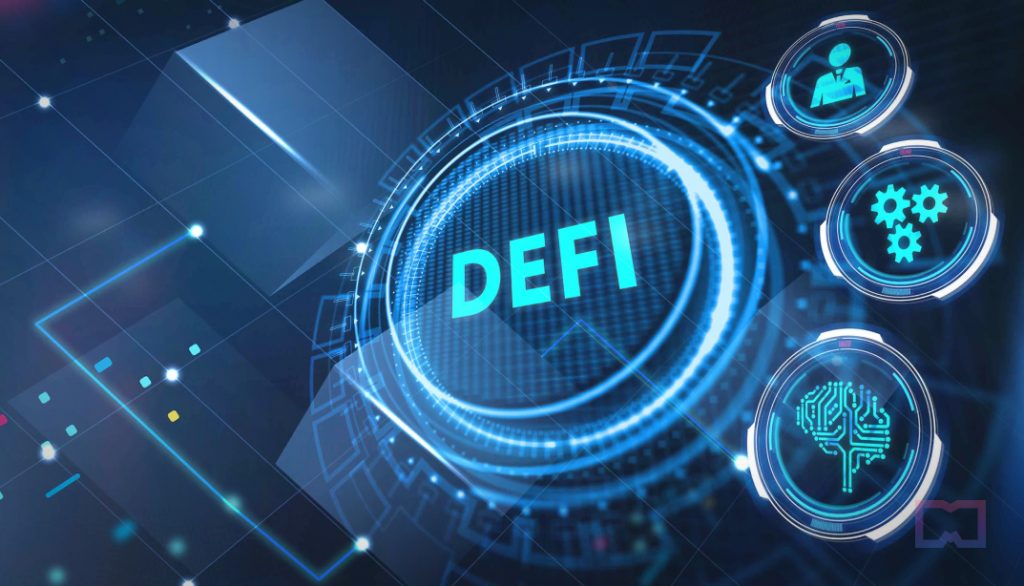DeFi staking PoS coins: A beginner’s guide (2023)

In Brief
DeFi staking is used in the crypto world because it allows users to support the development and growth of DeFi protocols and platforms.
DeFi staking allows users to support the development and growth of DeFi protocols and platforms while earning rewards.
Staking emerged in 2020 as a popular DeFi yield-generating strategy. DeFi staking allows users to stake their crypto assets in order to earn interest or rewards, and the ecosystem has grown to include a variety of protocols, platforms, and services.

What is DeFi staking?
DeFi staking is the process of locking up digital assets to earn a return on investment. Stakers can earn rewards in the form of interest, dividends, or tokens. DeFi staking platforms offer a variety of different staking options to best fit their preferences. However, it also comes with increased risks and challenges that are specific to the novel blockchains of the crypto industry, such as volatility and security concerns.
What are the benefits of DeFi staking?
The primary benefit of staking is the potential to earn high rewards. There are a variety of different staking options, allowing users to customize their DeFi staking experience. DeFi stakers can also earn rewards in the form of interest, dividends, or tokens.
Besides earning rewards, DeFi staking allows users to support the development and growth of protocols and platforms. By staking their assets, DeFi stakers help to secure the network and contribute to its overall health.
How does DeFi staking work?
Users must first deposit their digital assets into a DeFi staking platform. Once the assets are deposited, they will be used to help secure the network while earning rewards for the staker. The type of assets that can be DeFi staked, as well as the amount of time that is required to stake, will vary depending on the DeFi protocol or platform.
By staking their assets to validate the network, those who choose to do so are incentivized to securely validate transactions and blocks or face losing part or all of what they’ve put up. Staking also allows DeFi protocols to more easily offer liquidity to their users because it doesn’t have to come from the protocol creators’ own pockets.
It is important to note that DeFi staking is a relatively new phenomenon, and so there is still a great deal of uncertainty surrounding it. DeFi stakers should carefully consider the risks involved before committing any assets to DeFi staking.
What are the risks of DeFi staking?
Staking is appealing to investors because they can earn high rewards. However, it also comes with increased risks and challenges that are specific to the novel blockchains of the crypto industry, such as volatility and security concerns. DeFi staking also entails counterparty risk, as users are trusting a third party to hold their assets.
Other risks associated with DeFi staking include:
- Volatility: DeFi staking platforms are subject to the same volatility as other crypto assets. The value of DeFi staked assets can rise and fall quickly, resulting in losses for stakers.
- Security concerns: DeFi staking platforms are built on decentralized blockchains, which are susceptible to hacking and other security threats. DeFi stakers may lose their assets if a DeFi staking platform is hacked or experiences a security breach.
- Counterparty risk: DeFi staking platforms are centralized entities that hold users’ assets. As such, stakers are trusting a third party with their assets. If a staking platform is mismanaged or experiences financial difficulties, DeFi stakers may lose their assets.
Why is DeFi staking used in the crypto world?
DeFi staking is used in the crypto world because it allows users to support the development and growth of DeFi protocols and platforms. By staking their assets, DeFi stakers help to secure the network and contribute to its overall health.
Can you stake on DeFi wallet?
Yes, DeFi wallets can be used to stake PoS (Proof of Stake) coins. DeFi staking is the process of using DeFi technology and protocols to securely deposit and store cryptocurrencies into a DeFi wallet and use them as collateral to earn rewards.
In addition, DeFi offers a number of new opportunities for users who are looking to make the most of their cryptocurrency holdings. DeFi staking is a great way for users to increase their yield and generate passive income with minimal effort.
The future of decentralized finance staking
The future of DeFi staking looks bright as more and more people are beginning to realize the benefits of DeFi protocols and platforms. DeFi staking allows users to support the development and growth of protocols and platforms while earning rewards.
Related articles:
- PayPal adds crypto functionalities to the mobile app
- PayPal now lets users transfer crypto to external wallets
- Sony Music Entertainment files NFT and Metaverse-related trademarks
- English premier league files crypto and NFT trademarks
Disclaimer
In line with the Trust Project guidelines, please note that the information provided on this page is not intended to be and should not be interpreted as legal, tax, investment, financial, or any other form of advice. It is important to only invest what you can afford to lose and to seek independent financial advice if you have any doubts. For further information, we suggest referring to the terms and conditions as well as the help and support pages provided by the issuer or advertiser. MetaversePost is committed to accurate, unbiased reporting, but market conditions are subject to change without notice.
About The Author
Ken Gitonga is passionate about writing. His work involves writing crypto articles on SEO, TAs, News writing, Web3 articles, crypto price prediction, and white paper drafting. Ken is a content writer and marketer. He has worked in the SEO and content marketing industries for over 3 years and has helped businesses grow their online presence and traffic.
More articles

Ken Gitonga is passionate about writing. His work involves writing crypto articles on SEO, TAs, News writing, Web3 articles, crypto price prediction, and white paper drafting. Ken is a content writer and marketer. He has worked in the SEO and content marketing industries for over 3 years and has helped businesses grow their online presence and traffic.






















































